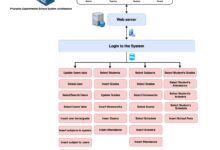Systems manager: Systems Manager: 7 Powerful Roles That Transform IT Operations
Ever wondered who keeps the digital backbone of a company running smoothly? Meet the systems manager — the unsung hero ensuring everything from servers to software works in perfect harmony. It’s not just tech; it’s strategy, leadership, and innovation combined.
What Is a Systems Manager and Why It Matters

A systems manager plays a pivotal role in modern organizations by overseeing the design, implementation, and maintenance of IT systems. This role is not limited to fixing computers or managing networks; it extends into strategic planning, resource allocation, and ensuring that technology aligns with business goals. As companies increasingly rely on digital infrastructure, the systems manager becomes a critical bridge between technical operations and executive decision-making.
Defining the Role of a Systems Manager
The term “systems manager” can vary slightly depending on the industry, but at its core, it refers to a professional responsible for managing an organization’s IT systems. According to the U.S. Bureau of Labor Statistics, these professionals plan, coordinate, and direct computer-related activities in an organization. They help determine the technological needs of a company and ensure that systems are secure, efficient, and scalable.
systems manager – Systems manager menjadi aspek penting yang dibahas di sini.
- Responsible for IT infrastructure oversight
- Coordinates between departments to align tech with business goals
- Manages budgets, timelines, and vendor relationships
Key Responsibilities of a Systems Manager
Systems managers wear many hats. Their daily tasks often include monitoring system performance, troubleshooting issues, implementing upgrades, and ensuring cybersecurity protocols are followed. They also lead teams of IT professionals, making leadership and communication skills just as important as technical expertise.
- Overseeing network and server operations
- Implementing disaster recovery and data backup plans
- Conducting regular system audits and performance reviews
“A great systems manager doesn’t just maintain systems—they anticipate problems before they happen.” — Tech Leadership Journal, 2023
Core Skills Every Systems Manager Must Have
To thrive in this dynamic role, a systems manager must possess a balanced mix of technical, managerial, and analytical abilities. These skills enable them to lead teams effectively while making data-driven decisions that impact the entire organization.
Technical Proficiency and IT Expertise
At the heart of the systems manager’s role is deep technical knowledge. This includes understanding operating systems (Windows, Linux, macOS), virtualization technologies (VMware, Hyper-V), cloud platforms (AWS, Azure, Google Cloud), and networking fundamentals (TCP/IP, DNS, firewalls).
systems manager – Systems manager menjadi aspek penting yang dibahas di sini.
- Mastery of system administration tools like PowerShell, Bash, or Ansible
- Familiarity with database management (SQL, NoSQL)
- Experience with monitoring tools such as Nagios, Zabbix, or SolarWinds
Leadership and Team Management Abilities
Unlike pure technical roles, systems managers lead teams of engineers, analysts, and support staff. They must inspire, delegate, and mentor others while maintaining accountability for project outcomes. Emotional intelligence, conflict resolution, and performance evaluation are essential components of this responsibility.
- Setting clear goals and KPIs for IT teams
- Conducting regular team meetings and one-on-ones
- Managing workload distribution during high-pressure periods
Problem-Solving and Strategic Thinking
When a server goes down or a security breach occurs, the systems manager is expected to respond swiftly and strategically. This requires not only technical troubleshooting but also the ability to assess risks, prioritize actions, and communicate effectively with stakeholders.
- Analyzing root causes using frameworks like ITIL or Six Sigma
- Developing long-term solutions rather than temporary fixes
- Aligning IT initiatives with organizational growth strategies
Systems Manager vs. Other IT Roles: Understanding the Differences
While the titles may sound similar, a systems manager differs significantly from roles like system administrator, network engineer, or IT director. Understanding these distinctions helps clarify career paths and organizational hierarchies within IT departments.
systems manager – Systems manager menjadi aspek penting yang dibahas di sini.
Systems Manager vs. System Administrator
A system administrator focuses on day-to-day operations—installing software, managing user accounts, patching systems, and responding to immediate technical issues. In contrast, a systems manager takes a broader view, overseeing multiple administrators, planning infrastructure changes, and managing budgets and timelines.
- System admins execute; systems managers strategize
- Admins work on specific systems; managers oversee entire ecosystems
- Managers are involved in hiring, training, and performance reviews
Systems Manager vs. IT Director
The IT director typically sits higher in the organizational hierarchy and is more focused on enterprise-wide technology strategy, policy development, and executive reporting. A systems manager may report to the IT director and is more hands-on with technical operations, though still involved in strategic planning.
- IT directors set vision; systems managers implement it
- Directors engage with C-suite executives; managers work with department heads
- Both roles require leadership, but directors focus more on governance
Systems Manager vs. Network Engineer
Network engineers specialize in designing and maintaining network infrastructure—routers, switches, firewalls, and connectivity protocols. While systems managers need to understand networking, their scope includes servers, storage, applications, and cross-functional integration.
systems manager – Systems manager menjadi aspek penting yang dibahas di sini.
- Network engineers optimize bandwidth and latency
- Systems managers ensure network reliability supports business applications
- Collaboration between both roles is crucial during outages or upgrades
How to Become a Systems Manager: Education and Career Path
Becoming a systems manager typically requires a combination of formal education, certifications, and progressive work experience. Most professionals start in entry-level IT roles and climb the ladder through demonstrated competence and leadership.
Required Education and Degrees
While some systems managers enter the field through experience alone, most hold at least a bachelor’s degree in computer science, information technology, or a related field. Advanced positions may prefer candidates with a master’s degree in information systems (MIS) or business administration (MBA) with a tech focus.
- Bachelor of Science in Computer Science or IT
- Master of Science in Information Systems (MSIS)
- MBA with concentration in Technology Management
Essential Certifications for Career Advancement
Certifications validate technical and managerial expertise. For systems managers, industry-recognized credentials can significantly boost credibility and job prospects. Some of the most valuable include:
systems manager – Systems manager menjadi aspek penting yang dibahas di sini.
- CISSP (Certified Information Systems Security Professional) – Ideal for those managing secure systems
- VMware Certified Professional (VCP) – For virtualization and cloud infrastructure
- Cisco CCNP or CCIE – For network-heavy environments
- PMP (Project Management Professional) – For managing complex IT projects
Typical Career Progression
Most systems managers follow a trajectory that begins with technical roles and evolves into leadership. A common path looks like this:
- Help Desk Technician → System Administrator → Senior Admin → Systems Manager
- Network Technician → Network Engineer → Network Manager → Systems Manager
- Software Developer → DevOps Engineer → IT Operations Lead → Systems Manager
Progression often depends on soft skills, initiative, and willingness to take on cross-functional projects.
Day in the Life of a Systems Manager
The daily routine of a systems manager is anything but monotonous. No two days are exactly alike, but certain patterns emerge based on priorities, ongoing projects, and unexpected challenges.
systems manager – Systems manager menjadi aspek penting yang dibahas di sini.
Morning Routine: Monitoring and Planning
Mornings often begin with reviewing system alerts, checking server health dashboards, and scanning security logs. Many systems managers start their day by assessing overnight backups, patch deployments, and any anomalies flagged by monitoring tools.
- Reviewing Nagios or Datadog alerts
- Checking email for urgent tickets or executive requests
- Planning team stand-up meetings or sprint reviews
Afternoon Tasks: Meetings and Project Oversight
The afternoon is typically reserved for meetings—whether with IT teams, department heads, or external vendors. Systems managers often lead discussions on upcoming upgrades, budget approvals, or incident post-mortems.
- Conducting status updates on cloud migration projects
- Reviewing vendor proposals for new hardware or software
- Coordinating with HR on IT onboarding for new hires
Evening and On-Call Responsibilities
Even if the official workday ends at 5 PM, systems managers are often on call for critical incidents. Major outages, data breaches, or scheduled maintenance windows frequently occur after hours, requiring availability and quick decision-making.
systems manager – Systems manager menjadi aspek penting yang dibahas di sini.
- Responding to server crashes or DDoS attacks
- Supervising off-hour patching or system migrations
- Documenting incidents for future analysis and compliance
Challenges Faced by Systems Managers Today
Despite the rewards, being a systems manager comes with significant challenges. Rapid technological change, cybersecurity threats, and organizational pressures make this one of the most demanding roles in IT.
Cybersecurity Threats and Data Protection
With ransomware attacks increasing by over 100% in recent years (according to CISA), systems managers must constantly update defenses, conduct vulnerability assessments, and train staff on phishing awareness.
- Implementing zero-trust architectures
- Managing endpoint detection and response (EDR) tools
- Ensuring compliance with GDPR, HIPAA, or CCPA regulations
Managing Remote and Hybrid Workforces
The shift to remote work has transformed how systems are accessed and secured. Systems managers now oversee virtual private networks (VPNs), cloud-based collaboration tools (like Microsoft 365 or Google Workspace), and endpoint security for personal devices.
systems manager – Systems manager menjadi aspek penting yang dibahas di sini.
- Scaling infrastructure to support distributed teams
- Securing home networks and mobile access
- Ensuring seamless user experience across locations
Balancing Innovation with Stability
While businesses push for digital transformation, systems managers must balance innovation with system reliability. Rolling out new AI tools or migrating to the cloud can improve efficiency—but only if done without disrupting core operations.
- Testing new software in sandbox environments first
- Phasing rollouts to minimize risk
- Communicating changes clearly to non-technical stakeholders
Future Trends Shaping the Role of Systems Manager
The role of the systems manager is evolving rapidly due to advancements in automation, artificial intelligence, and cloud computing. Staying ahead of these trends is essential for long-term success.
Automation and AI in System Management
Tools like AI-driven monitoring (e.g., AIOps), automated patch management, and self-healing networks are reducing manual workloads. Systems managers are shifting from reactive troubleshooting to proactive optimization.
systems manager – Systems manager menjadi aspek penting yang dibahas di sini.
- Using machine learning to predict hardware failures
- Deploying chatbots for internal IT support
- Leveraging automation scripts for repetitive tasks
Cloud-First and Hybrid Infrastructure Models
More organizations are adopting cloud-first strategies, meaning systems managers must master multi-cloud environments and hybrid architectures that blend on-premise and cloud resources.
- Designing resilient architectures using AWS and Azure
- Optimizing cloud costs with FinOps practices
- Ensuring data sovereignty and compliance across regions
Increased Focus on Sustainability and Green IT
As environmental concerns grow, systems managers are being asked to reduce energy consumption in data centers, optimize server utilization, and adopt eco-friendly hardware.
- Virtualizing servers to reduce physical footprint
- Using energy-efficient cooling systems in server rooms
- Reporting on carbon footprint metrics to executives
How Organizations Can Support Effective Systems Managers
To maximize the impact of a systems manager, organizations must provide the right tools, authority, and support structure. Without proper backing, even the most skilled professionals can struggle to deliver results.
systems manager – Systems manager menjadi aspek penting yang dibahas di sini.
Providing Adequate Budget and Resources
Underfunded IT departments lead to outdated hardware, security vulnerabilities, and employee burnout. Systems managers need sufficient budgets to upgrade infrastructure, hire talent, and invest in training.
- Allocating funds for annual hardware refresh cycles
- Investing in cybersecurity insurance and tools
- Supporting continuous learning through conferences and courses
Empowering Decision-Making Authority
Systems managers should have the authority to make technical and operational decisions without excessive bureaucracy. Delayed approvals can prolong outages and hinder innovation.
- Allowing autonomy in vendor selection and contract negotiation
- Trusting managers to prioritize security over convenience
- Including them in executive planning sessions
Fostering a Culture of Collaboration
IT doesn’t operate in a silo. Systems managers need strong relationships with finance, HR, marketing, and operations to ensure technology supports all business functions.
systems manager – Systems manager menjadi aspek penting yang dibahas di sini.
- Encouraging cross-departmental project teams
- Using collaboration platforms like Slack or Teams effectively
- Holding regular interdepartmental tech briefings
What does a systems manager do?
A systems manager oversees an organization’s IT infrastructure, including servers, networks, software, and security. They lead IT teams, manage budgets, implement technology strategies, and ensure systems are reliable, scalable, and aligned with business goals.
How much does a systems manager earn?
systems manager – Systems manager menjadi aspek penting yang dibahas di sini.
According to the U.S. Bureau of Labor Statistics, the median annual wage for computer and information systems managers was $163,740 as of May 2023. Salaries vary based on location, industry, experience, and certifications.
Is systems management a good career?
Yes, systems management is a highly rewarding career with strong job growth, competitive salaries, and opportunities for advancement. The BLS projects a 16% increase in employment from 2022 to 2032, much faster than average.
systems manager – Systems manager menjadi aspek penting yang dibahas di sini.
What certifications are best for a systems manager?
Top certifications include CISSP for security, PMP for project management, VCP for virtualization, and AWS/Azure certifications for cloud expertise. The best choice depends on the individual’s focus area and organizational needs.
Can you become a systems manager without a degree?
systems manager – Systems manager menjadi aspek penting yang dibahas di sini.
While possible, it’s challenging. Most employers prefer a bachelor’s degree in IT or computer science. However, extensive experience, proven track record, and relevant certifications can sometimes compensate for lack of formal education.
Being a systems manager is more than just managing machines—it’s about leading people, protecting data, and driving innovation. From ensuring cybersecurity to guiding digital transformation, this role sits at the intersection of technology and leadership. As businesses continue to rely on complex IT ecosystems, the demand for skilled systems managers will only grow. Whether you’re aspiring to become one or looking to support your IT leadership team, understanding this role’s depth and impact is essential in today’s digital world.
systems manager – Systems manager menjadi aspek penting yang dibahas di sini.
Further Reading:









